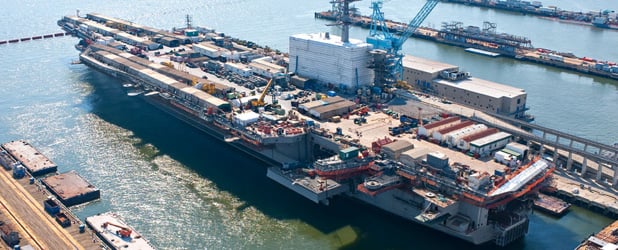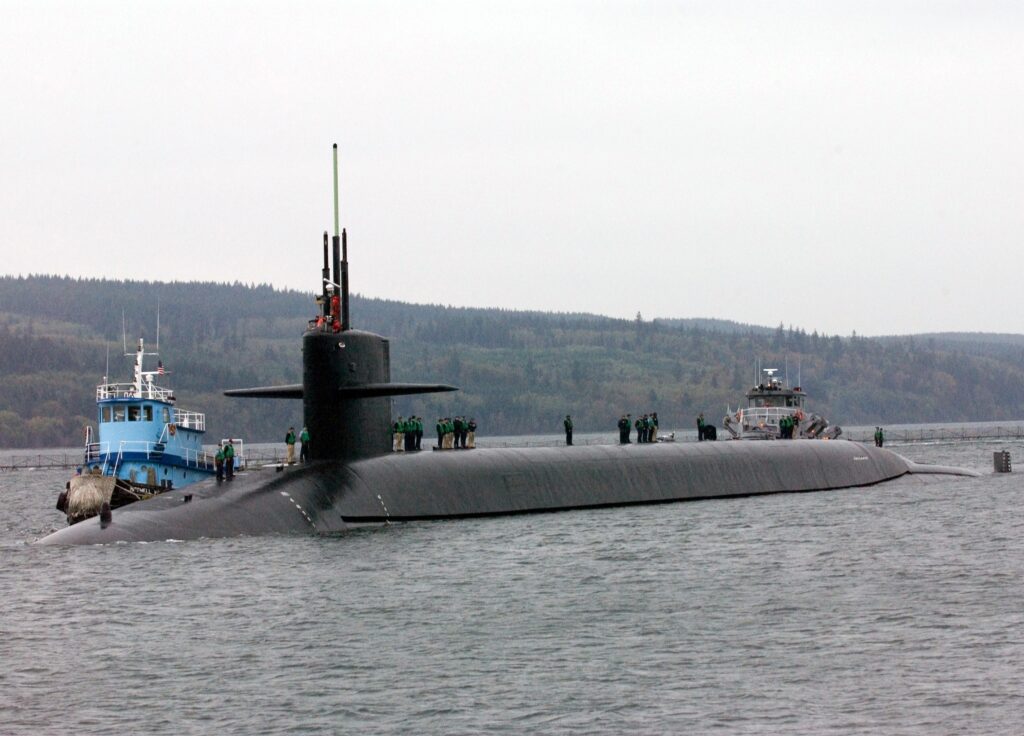By ANDY KEISER
 Rare earths are 17 chemical elements used in military equipment as varied as missile guidance systems to lasers. China controls much of the world’s rare earth production, which has made them a concern of the Pentagon and the White House. Uranium is another critical military material largely controlled today by foreign sources. What should be done? Read on! The Editor.
Rare earths are 17 chemical elements used in military equipment as varied as missile guidance systems to lasers. China controls much of the world’s rare earth production, which has made them a concern of the Pentagon and the White House. Uranium is another critical military material largely controlled today by foreign sources. What should be done? Read on! The Editor.
One way China and Russia are successfully undermining American leadership is by flooding the global market with state-subsided rare earths, including the nuclear materials that power critical American aircraft carriers and submarines.
Immediate, direct federal purchases of uranium is one key way that we can counter the malign influence of China and Russia by securing the U.S. nuclear supply chain for national security. Utilizing his newly-created Nuclear Fuel Working Group, President Trump can strengthen America’s position in the world and restore a finite and diminishing American uranium supply with direct federal uranium purchases.
China has made production of rare earths a strategic priority. Roughly 80 percent of the rare earths imported by the U.S. come from China. Just 30 years ago, the U.S. was the world’s largest producer of rare earths. Today, only one rare earth mine remains in America and its ore is processed where? In China.
As for uranium specifically, the core material for U.S. military and civilian nuclear technology, the U.S. imports 93 percent of its uranium needs, and that number is expected to worsen to 99 percent by the end of 2019. Although the U.S. has some of the largest and highest-grade uranium deposits in the world, imported uranium costs less.
In fact, nearly half of our uranium comes from Russia or other former Soviet Union states, whose state-owned companies are flooding the global market and driving free-market companies out of business. This is a strategic vulnerability, because as a result of losing a domestic nuclear fuel industry to replace that stockpile, the commercial nuclear fleet in the United States is now almost entirely dependent on imports of nuclear fuel.
In Iran, the government has been challenging its obligations under the Joint Comprehensive Plan of Action (JCPOA). The White House had approved additional Iran sanctions waivers to allow nuclear material from Russia to continue entering the U.S. Despite the role it plays in supporting Iranian nuclear activity, Russian state-owned Rosatom subsidiaries continued receiving waivers to sell uranium to commercial reactors in the United States, including those that enjoy federal, state or ratepayer subsidies. Thankfully, this week Secretary of State Pompeo announced it would no longer receive those waivers declaring that: “The right amount of uranium enrichment for the world’s largest state sponsor of terror is zero.”
As for domestic action, the president previously declined the recommendation from a nine-month Department of Commerce study to implement a quota for domestic material equal to the amount entering the U.S. market from state-subsidized Russian production. Instead, the president established the Nuclear Fuel Working Group to develop recommendations to save the failing nuclear fuel cycle, which are due out later this month.
International treaties mandate that the uranium used for national security, including to fuel the reactors that power naval vessels, be entirely of domestic origin. The national security supply chain generally relies upon commercial demand to maintain critical capabilities until needed. In the case of uranium, that supply chain is atrophying due to a lack of domestic commercial demand that is exacerbated by the strategic oversupply of the global market by Russia and China. The United States has world-class reserves, production techniques and environmental performance, yet our nuclear supply chain to fuel national security needs and clean energy languishes because state-subsidized uranium has overrun the market.
Rebuilding that nuclear infrastructure is necessary now and waiting any longer weakens America’s national and economic security. A robust domestic nuclear fuel cycle will replace America’s dependence on our primary adversaries and diminish the global chokehold on the world’s nuclear energy industry. Fewer things are more important to get right to maintain America’s military and economic edge in the world.

No comments:
Post a Comment